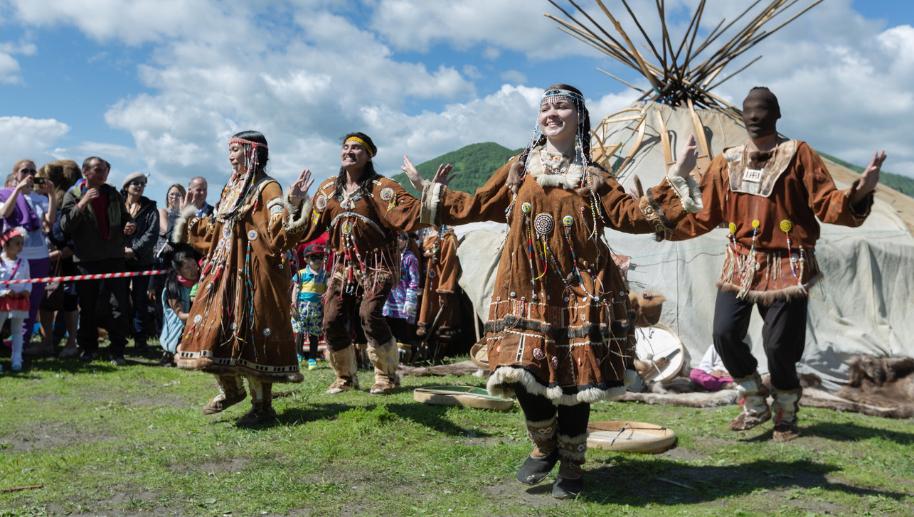
Salekhard To Host Russian North Indigenous Youth Forum

Participants in the Russian North Indigenous Youth Forum, which will be held in Salekhard on 22–25 November, will discuss the development of joint projects to preserve the culture, language, and traditions of Indigenous Peoples. The forum will be held as part of the plan of events of Russia’s chairmanship of the Arctic Council in 2021–2023, which are being organized by the Roscongress Foundation.
“The issue of Indigenous Peoples is a key focus area for the Russian Federation as chairman of the Arctic Council. Our country has already initiated various projects of the council related to the digitalization of the linguistic and cultural heritage of the peoples of the Arctic and the unification of the museum complexes of the Arctic states. The project ‘Indigenous Youth, Food Culture, and Change in the Arctic’ (EALLU), which aims to study the gastronomic traditions of the peoples of the North, promote Indigenous products, and ensure food security, is of paramount importance and has a social focus. I am certain that the participants in the upcoming forum will be able to offer a fresh look and new initiatives for preserving the culture, language, and traditions of Indigenous Peoples,” said Nikolay Korchunov, Chair of the Senior Arctic Officials and Ambassador-at-Large for Arctic Cooperation of the Russian Ministry of Foreign Affairs.
The goal of the Russian North Youth Forum of the Indigenous Peoples of the North, Siberia, and the Far East is to bring together the public initiatives of young people and promote the development of new projects that aim to preserve the culture, language, and traditions of Indigenous Peoples. The event programme includes panel discussions that will be attended by experts and honoured guests, training sessions, master classes, and various platforms to exchange experience. The forum participants will be divided into three groups in which they will discuss issues concerning youth entrepreneurship, the preservation and promotion of language heritage, the development of ethno-tourism, and sustainable development practices.
As part of the cultural programme, participants will take sightseeing trips to the places where Indigenous Peoples traditionally reside and learn about their customs, traditions, holidays, and literature in their national languages. A northern multi-sport tournament, intellectual quiz, and other events are also planned.
Roughly 100 people from different regions of Russia will take part in the forum, including both young people of the Indigenous Peoples of the North, Siberia, and the Far East, as well as young scientists and public figures who handle socially significant issues related to the development of these territories.
The Russian North Forum has been held since 2015 in an effort to create an interethnic communication platform for young people to interact and get active young people involved in solving problems that are consistent with the current needs of the government and society. The Forum is organized by the Federal Agency for Youth Affairs and the Government of the Yamalo-Nenets Autonomous District.
Russia is the chair of the Arctic Council in 2021–2023. One of Russia’s main priorities is to develop human capital in the region, including the Indigenous Peoples of the North. Russia devotes special attention to maintaining the sustainability and viability of the peoples of the North, promoting measures to adapt them to climate change, improving people’s well-being, health, education, and quality of life, and ensuring sustainable socioeconomic development throughout the region. The Russian side has initiated projects to digitalize the cultural and linguistic heritage of the Indigenous Peoples of the North, develop renewable energy sources, create an international Arctic research station that runs on carbon-free energy, and ensure biosecurity in the Arctic. In addition, Russia is preparing draft proposals on the traditional medicine of Indigenous Peoples and the development of creative industries in the Arctic, and is working on an initiative to create Digital Museums of the Arctic.